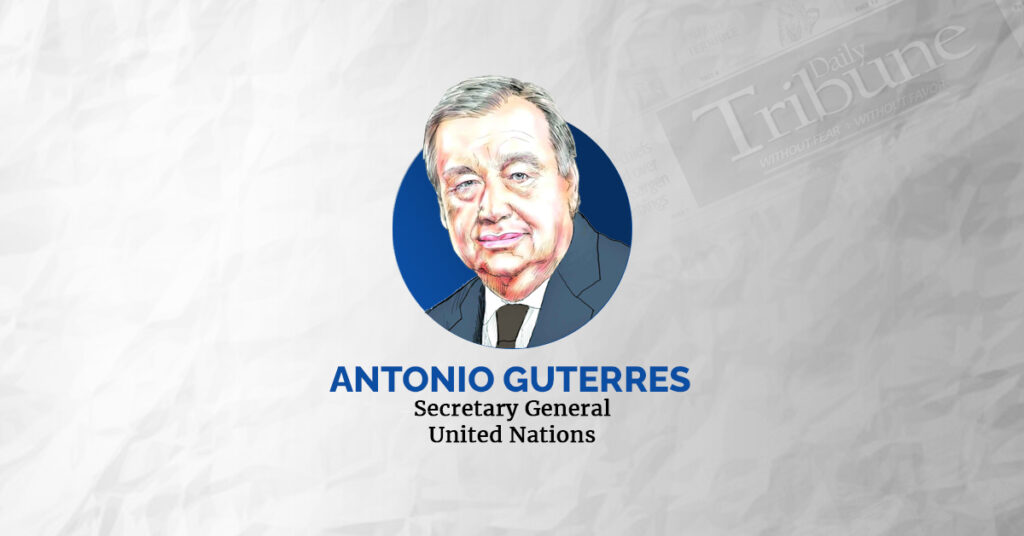Across the globe, democracy is eroding; populism and extremism are increasing; our climate is heating; and trust in institutions of all kinds is breaking down.
The global economy is faltering.
And many developing countries are caught in the jaws of a debt crisis, unable to pay their bills or to invest in sustainable development, climate action or digital technologies.
And high interest rates put private finance largely out of reach of so many countries.
Meanwhile, conflicts are multiplying, and human rights and international law are being flouted — from Russia’s invasion of Ukraine, to Sudan and to the Middle East.
From the United Nations Security Council to the Bretton Woods system, global institutions reflect the world that built them 80 years ago, when many African countries were still colonized. They are no longer fit for purpose.
The Security Council is stuck in a time warp. How can we accept that it still lacks a single African Permanent Member?
The global financial system is outdated, dysfunctional and unfair.
This September, the United Nations will convene the Summit of the Future, with a focus on updating these institutions so that they align with today’s world and respond to today’s challenges — notably, the vital interests of developing countries.
Governments will consider our proposed New Agenda for Peace, which sets out initiatives around disarmament, conflict prevention, tackling terrorism and transnational crime and managing the security threats including those posed by Artificial Intelligence.
The New Agenda for Peace calls for a new generation of peace operations — including peace enforcement and counter-terrorism operations — led by regional partners, notably the African Union, but with a Security Council mandate and supported by guaranteed funding, including through UN assessed contributions.
Peace and sustainable development go hand in hand.
Developing countries have a large and growing share of the global economy. But their representation in global financial institutions lags far behind.
September’s Summit of the Future will consider ways to reform the global financial architecture and make it truly universal and responsive to today’s global challenges.
In the immediate term, we need urgent action on debt, including a reprieve for countries facing insurmountable debt repayment obligations over the next three years.
And we also need faster progress on an SDG Stimulus of $500 billion a year in accessible, long-term finance for sustainable development.
Multilateral development banks must be adequately capitalized and must change their business models to leverage far more private finance for developing countries at a reasonable cost to invest in the SDGs.
And developed countries must also meet their pledges on climate finance.
The United Nations is working around the world to support the efforts of developing countries to mobilize domestic resources and maximize investments in the SDGs.
Strong, cohesive societies can only be built on a foundation of advancing sustainable development, respecting human rights and recognizing the rights of minorities, and standing up to all forms of discrimination.
It is critical to uphold the basic human rights of every person, regardless of background, race, religion, sexual orientation or political opinion.
This is the only path to a safer, fairer, more peaceful world for all.
q q q
Excerpts from the UN Secretary-General’s opening remarks at press encounter at Third South Summit-G77 plus China, 21 January 2024.
